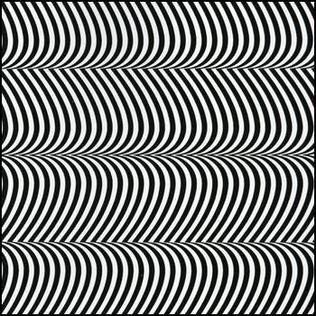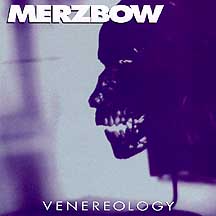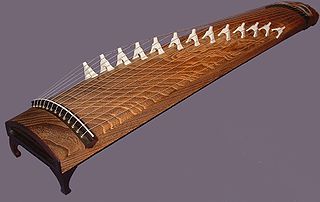Merzbox is a box set compilation by the Japanese noise musician Merzbow. It consists of 50 CDs spanning Merzbow's career from 1979 to 1997. 30 discs are taken from long out of print releases, while 20 are composed mainly of unreleased material. The box also contains two CD-ROMs, six CD-sized round cards, six round stickers, a poster, a black long-sleeve T-shirt, a medallion, and the Merzbook, all packaged together in a "fetish" black rubber box. It is limited to 1000 numbered copies. A Merzbox Sampler was released in 1997.

Pulse Demon is an album by the Japanese noise musician Merzbow. Unlike Venereology, his previous album for Release, this album is not inspired by heavy metal. Outtakes from this album are included on Merzmorphosis.

Merzbuddha is an album by the Japanese noise musician Merzbow. The album was inspired by dub and contains "deep bass riffs, electronic vibes and beats."

Venereology is an album by the Japanese noise musician Merzbow. It was inspired by death metal and grindcore.

Dharma is an album by the Japanese noise musician Merzbow. The title refers to the Buddhist concept.

Cloud Cock OO Grand is an album by the Japanese noise musician Merzbow. It was Merzbow's first CD and showcases his then-new harsh noise style.

Dolphin Sonar is an album by the Japanese noise musician Merzbow. The album is a protest against the annual slaughter of dolphins in Taiji, Japan. Masami Akita is a supporter of Sea Shepherd and Dolphin Sonar includes liner notes by founder Paul Watson.

Noizhead is a live album by the Japanese noise musician Merzbow. The same European tour also produced the live album Mort Aux Vaches: Locomotive Breath.

Rainbow Electronics 2 is an album by the Japanese noise musician Merzbow. It is an alternate mix of the 1990 album Rainbow Electronics.

Yaho-Niwa is an album by the Japanese noise musician Merzbow. The first 50 copies came with a signed and numbered postcard.

Gman//HJYUGTF2 is an album by the Japanese noise musician Merzbow. According to the label, it mixes noise and drone with clean drumming and Jew's harp. It is from the same sessions as Uzu Me Ku, and the cover photo was taken at the same location.

Ko To No O To is a 7" release by the Japanese noise musician Merzbow. It is the first in a series of 7"s by seven different artists on the label.

Merzbuddha Variations is an album by the Japanese noise musician Merzbow. It features outtakes from the Merzbuddha sessions.

Kibako is a studio album by the Japanese noise musician Merzbow. It was released on December 12, 2012 by the Italian label Rustblade, and is his second release on the label. Rustblade describes the album as consisting of "tribal wooden instruments, violent analogue synths and ambient soundscapes".

Samidara is an album by the Japanese noise musician Merzbow, released as both an LP and a cassette. It was made available for pre-order on December 5, 2012, but didn't start shipping until July 2013.

Tamayodo is an album by the Japanese noise musician Merzbow. It is described as "monotonic electro pulse-noise works by all analogue equipments."

Cuts is collaborative studio album by the Japanese noise musician Merzbow, Hungarian drummer Balázs Pándi, and Swedish saxophonist Mats Gustafsson. It was recorded during a stop on the trio's East European tour in April 2012. The album was followed up in January 2015 by Live in Tabačka 13/04/12, which was recorded live the day before Cuts in Slovakia. Cuts of Guilt, Cuts Deeper, a studio album recorded with the addition of Thurston Moore, was released in March 2015.

Keio Line is a collaborative studio album by the French electronic rock guitarist Richard Pinhas and the Japanese noise musician Merzbow. The album was released in September 2008, on double CD by Cuneiform Records in the US and on triple LP by Dirter Promotions in the UK. It is the first of several collaborations between Pinhas and Merzbow.

Flying Basket is a collaborative studio album by the Japanese free jazz saxophonist Akira Sakata, American experimental guitarist Jim O'Rourke, improv duo Chikamorachi, and Japanese noise musician Merzbow.

An Untroublesome Defencelessness is a collaborative studio album by the Japanese noise musician Merzbow, Japanese guitarist Keiji Haino, and the Hungarian drummer Balázs Pándi. Merzbow and Pándi have worked together since 2009; Merzbow and Haino previously played together as Kikuri, and released the album Pulverized Purple on Les Disques Victo in 2008.























